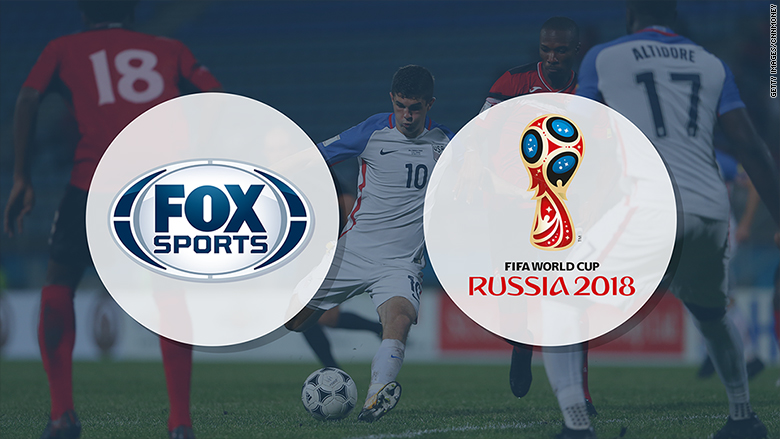
The failure of the U.S. to qualify for the 2018 World Cup isn't just a crushing loss for soccer fans -- it's also a big blow for 21st Century Fox and its Fox Sports network, which spent a fortune on broadcasting rights for the competition.
It's the first time since 1986 that the U.S. men's team has failed to qualify for the World Cup, the most watched sporting event in the world. While few expected the team to make it to the finals, just getting to the tournament in Russia would have added extra promotional value and viewership for Rupert Murdoch's media group.
21st Century Fox (FOX) bid about $425 million in 2011 for the right to broadcast the 2018 and 2022 World Cups in the U.S. in English, outbidding the previous ESPN contract by a factor of four, according to Bloomberg. Telemundo is spending about $600 million for the Spanish-language U.S. rights.
Last year, Fox won an extension to the deal through the 2026 men's World Cup.
And it's got ambitious plans for next year's event. Just two weeks ago, Fox announced an "unprecedented" coverage plan for the World Cup, promising 350 hours of programming and "more soccer matches on broadcast television than the last four World Cups combined." It's planning a two-storey "state-of-the-art facility in Moscow's iconic Red Square."
In a statement, Fox Sports said it still expects to draw a big audience thanks to the star power of players like Lionel Messi and Cristiano Ronaldo, whose teams will be playing in Russia.
"While the U.S. was eliminated, the biggest stars in the world from Lionel Messi to Cristiano Ronaldo stamped their tickets to Russia on the same day, and will battle teams ranging from Mexico to England that have massive fan bases in America," a Fox Sports spokesperson said.
The network added that it remains "steadfast in our commitment" to the game.
Though the lack of an American team will likely mean a smaller audience in the United States, the time zone difference -- Moscow is seven hours ahead of the U.S. East Coast -- means casual viewers may have been hard to win over anyway. And diehard fans will continue to tune in.
"I think there's obviously a negative impact in that you don't get more casual viewing. But because of the time zone it would have been hard to get the casual viewing in the first place. So it's a loss for Fox, obviously, but it's probably not as much of a disaster as they might have expected," said Brian Wieser, a senior analyst of advertising, media and internet at Pivotal Research Group LLC.
The 2014 World Cup in Brazil was much more convenient for U.S. audiences, with games played just one hour ahead of the East Coast. Last year's climax, when Germany beat Argentina, was the most-watched men's World Cup Final match ever, averaging more than 17 million U.S. viewers on broadcast alone, according to Nielsen.
And even if the U.S. had qualified, tense relations between Washington and Moscow, including continued U.S. probes into alleged Russian meddling in last year's election, may also have put a dampener on ratings.
"The geopolitical factors could have impacted viewing to begin with, on top of the time zone which was just not very good for the U.S. audience," Wieser said.


